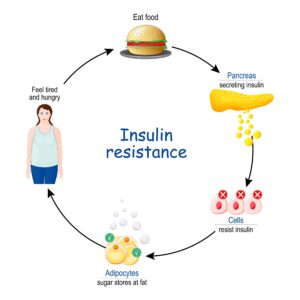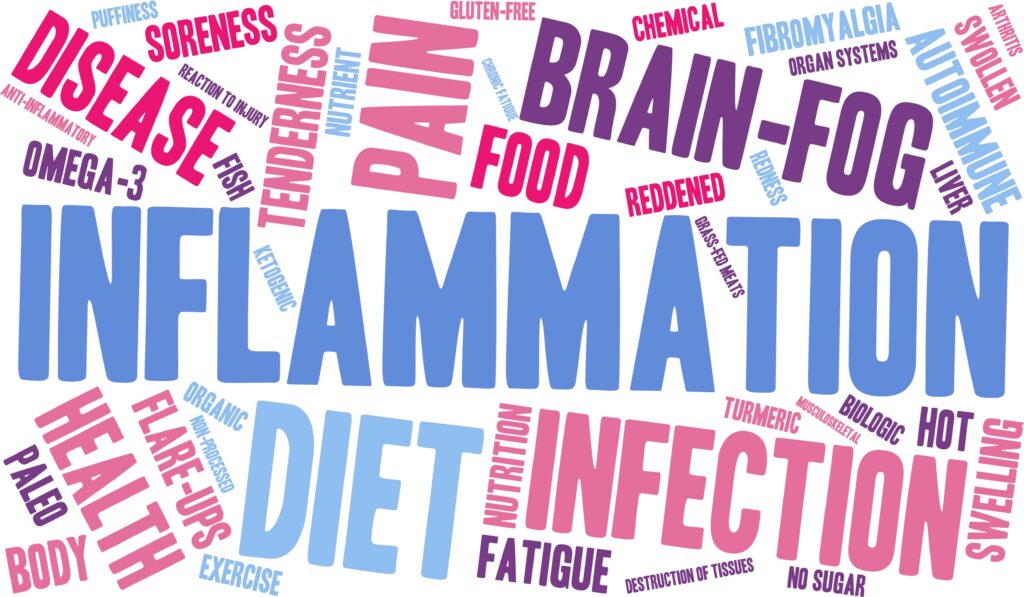Naperville Integrated Wellness
NAPERVILLE'S TOP RATED LOCAL® FUNCTIONAL MEDICINE FACILITY

Why Can’t I Lose Weight?
You have been doing the things that should result in weight loss, but nothing is working! These are common questions received as the weight loss center near Chicago. You may have asked, “How is it possible!” You changed your diet and started getting more exercise, but you are not seeing any changes. Maybe you have been at it 2 weeks or 8 months, and you can’t understand the lack of results. Losing weight seems to be an impossibility for you!
If this sounds anything like what you are experiencing, you are not alone. As a functional medicine doctor, I see this problem everyday in my office. I have heard some pretty astonishing stories about people doing amazing things in order to lose weight but seeing very little if any results. I admire how dedicated and persistent some of these people have been. Our weight loss center near Chicago is here to help you get back on track.
Why is losing weight so difficult?
 Why can’t I lose weight? There is not a weight loss solution that will work for everyone, if one did exist, there would be no need to write this article. If simple changes to your diet and increasing physical activity are not working for you, then you need to dig a little deeper into the causes of stubborn weight loss. You might call this a functional medicine approach to weight loss… looking for root causes…the hidden reasons why you can’t lose weight.
Why can’t I lose weight? There is not a weight loss solution that will work for everyone, if one did exist, there would be no need to write this article. If simple changes to your diet and increasing physical activity are not working for you, then you need to dig a little deeper into the causes of stubborn weight loss. You might call this a functional medicine approach to weight loss… looking for root causes…the hidden reasons why you can’t lose weight.
Which weight loss program is best?
Which is the best weight loss program for me? The best weight loss program is the one that addressed the reason(s) you are gaining weight or can’t lose it. During my 22 years of practice in functional medicine I have isolated 3 common problems that will make losing weight extremely difficult.
3 reasons you can’t lose weight
These are the most common root causes I have been able to identify in my patients. These causes can be identified though blood tests and might give you the information you need to start making progress with your weight loss goals. Before I discuss the 3 root causes of weight gain, I want to quickly address age and genetics.
What about my age?
When we get older, we may need to work harder to achieve our weight loss goals. For many of us, it was easier to lose weight when we were in our 20s than when we hit our 30s 40s, 50s or 60s!
Do genetics matter?
Maybe you have always had difficulty managing your weight. If this is the case, you will probably have to work harder at losing weight than someone who did not have this lifelong struggle.
Ok now let’s get to the top 3 reasons you can’t lose weight.
- Hashimoto’s disease or low thyroid hormones
- Insulin resistance
- Inflammation
Hashimoto’s disease
I want to start with Hashimoto’s disease because many people have this autoimmune disease and don’t even know it. Hashimoto’s disease is an autoimmune disease that affects the thyroid gland, but most doctors don’t test for it. Why not? Doctors don’t typically test for this disease because there is no medication for it. I always test for this disease because it can create many health problems for people, including weight gain or the inability to lose weight. While there is not a drug to treat Hashimoto’s disease, there are many things that can be done to help with this condition.
Are my thyroid levels normal?
 You may have had a thyroid test, and it may have been “normal” but that does not mean you don’t have a thyroid problem!
You may have had a thyroid test, and it may have been “normal” but that does not mean you don’t have a thyroid problem!
If you had your thyroid tested, you probably had a TSH (thyroid stimulating hormone) test. You might have also had a T4 or a freeT4 test. Let me simplify these tests for you.
TSH is a hormone produced by your pituitary gland that tells your thyroid gland to make the thyroid hormone called T4/thyroxine. If your doctor only tested TSH, then they didn’t test any thyroid hormones, they tested a pituitary gland hormone.
You could have low thyroid hormone levels and or have Hashimoto’s disease and have a normal TSH test.
If you had T4 tested, then you did have a thyroid hormone tested, but not the active form of thyroid hormone.
“Thyroxine (T4) is synthesized in the thyroid gland. T4 is metabolized to triiodothyronine (T3). T4 is considered a prohormone for T3, the biologically most active thyroid hormone.”
Mayo Clinic Laboratories
https://endocrinology.testcatalog.org/show/T4#:~:text=Thyroxine%20(T4)%20is%20synthesized%20in,free%2C%20or%20unbound%2C%20portion.
Most doctors do not test the levels of T3, which you can see is most active thyroid hormone. You could have low T3 and Hashimoto’s disease with a normal TSH and T4.
When I am evaluating a patient’s thyroid gland, I run several tests so we can identify problems that might be due to Hashimoto’s disease, T4 and T3 levels. There are several tests that I run related to T4 and T3 but that is beyond the scope of this article.
The point I want to make is that you can have a normal TSH test, a normal fT4 or T4 test and still have a thyroid problem.
A proper evaluation of thyroid health and thyroid hormone levels requires more than just checking the levels of TSH.
Insulin Resistance
Odds are, you have never been tested for a health problem called insulin resistance.
Maybe you have heard about this thing called insulin resistance, but what is it? Basically, your body is making too much insulin, and this can lead to weight gain, prediabetes, and even type 2 diabetes.
“Insulin resistance is when cells in your muscles, fat, and liver don’t respond well to insulin and can’t use glucose from your blood for energy. To make up for it, your pancreas makes more insulin. Over time, your blood sugar levels go up.”
Web MD
https://www.webmd.com/diabetes/insulin-resistance-syndrome#:~:text=Insulin%20resistance%20is%20when%20cells,blood%20sugar%20levels%20go%20up.
There is currently a weight loss program that acknowledges the issue of insulin resistance. It is called GOLO.
“Insulin’s performance is affected by unbalanced diets which increase glucose levels, causing excess glucose to be stored as fat. Unhealthy insulin levels lead to Insulin Resistance, prediabetes, type 2 diabetes, and other serious health conditions including heart disease and Alzheimer’s. Reducing Insulin Resistance allows the body to release stored fat and improves your overall health.”
https://www.golo.com/?gclid=Cj0KCQjwzLCVBhD3ARIsAPKYTcS7xE2OBKnUrQPclhF55RbJFZGugPimk4z2gQAVyZvLH9lV84uxtscaAssEEALw_wcB
Do I have insulin resistance?
 So how do you know if you have insulin resistance? Just because someone is overweight, it does not mean they have insulin resistance.
So how do you know if you have insulin resistance? Just because someone is overweight, it does not mean they have insulin resistance.
Most doctors only test fasting glucose levels. You can have a normal glucose test and have insulin resistance. You can have a normal glucose test and be insulin resistant and prediabetic.
There are 3 tests I like to use when screening for blood sugar and insulin resistance problems.
- Fasting glucose
- A1c (hemoglobin A1c)
- Fasting insulin
With these tests you can determine if you have insulin resistance, prediabetes, or diabetes. You can’t determine if someone has insulin resistance or prediabetes with only a fasting glucose test. Some people have lab-high fasting glucose levels and they do not have insulin resistance, prediabetes or diabetes.
Here is the bottom line…you need to have the correct tests done and a doctor who understands these tests, how to interpret them and eliminate false high and false low results.
If you have insulin resistance or prediabetes you are going to have a hard time losing weight.
Inflammation and weight gain
Did you know inflammation can cause weight gain and the weight gain leads to more inflammation, creating a vicious cycle.
There is an association between increased weight gain and increased inflammation and more weight can mean more inflammation. Gut inflammation may also be a contributing factor and can lead to weight gain.
Endocrineweb
https://www.endocrineweb.com/obesity-inflammation-cycle
There are blood tests that can be used to assess inflammation levels in your body. The problem with testing inflammation is that there are many types of “inflammation” but there are only a few tests to evaluate it.
Two inflammation tests are the ESR and CRP. Inflammation is more difficult to assess than thyroid and insulin/blood sugar problems. Just because you have a normal ESR, or CRP test it does not mean you don’t have problems with inflammation in your body.
Many people are not aware that they are in a state of chronic inflammation. You don’t need to be experiencing chronic pain to be chronically inflamed.
 The numerous causes of inflammation and how it leads to weight gain are complex, so let’s keep this simple and useful. Problems with inflammation involve the immune system and most of the immune system is located in and around the digestive system. If you are having problems losing weight, you may be eating foods that are increasing the inflammation in your body.
The numerous causes of inflammation and how it leads to weight gain are complex, so let’s keep this simple and useful. Problems with inflammation involve the immune system and most of the immune system is located in and around the digestive system. If you are having problems losing weight, you may be eating foods that are increasing the inflammation in your body.
Food sensitivities and weight gain
Inflammation can be caused by the foods we eat. If your immune system doesn’t agree with a particular food, it will attack it, leading to inflammation in your body. Even healthy foods can cause inflammation. You may not notice this occurring in your body, especially if you are already in a state of chronic inflammation.
Dr Mark Hyman is a very well-known functional medicine physician and this is what he says about food sensitivities…
“Without diagnosis or awareness, the damage is repeated over and over, meal after meal. Eventually, inflammation seeps throughout the body, establishing an environment ripe for weight gain and chronic disease.
The problem is that most physicians, especially allergists, don’t see the value in uncovering hidden food allergies. That is unfortunate because there is a growing body of medical literature illuminating the intimate relationship between the gut, food, and illness.
https://drhyman.com/blog/2012/02/22/how-hidden-food-sensitivities-make-you-fat/
Gut microbes
We have trillions of organisms living in our digestive system.
“Our gut harbors a complex community of over 100 trillion microbial cells which influence human physiology, metabolism, nutrition and immune function while disruption to the gut microbiota has been linked with gastrointestinal conditions such as inflammatory bowel disease and obesity.”
https://www.ncbi.nlm.nih.gov/pmc/articles/PMC3667473/#:~:text=Our%20gut%20harbours%20a%20complex,inflammatory%20bowel%20disease%20and%20obesity.
There are tests that can help identify problems with the balance of these organisms in your digestive system. An imbalance within this system can be a chronic source of inflammation, metabolism dysfunction, and weight gain.
Summary
As you can see, there might be an actual health issue that is making your weight loss goals difficulty to achieve. As a functional medicine doctor serving Chicago and its suburbs, I always try to the discover the root cause of the health issues in my patients. If you are not getting anywhere with diet and exercise, then you need to search deeper to find out why. I hope you found this article helpful.
Our weight loss center near Chicago is here to help you get back on track.
My wish for you…health, happiness and a better quality of life!
If you would like more information about integrative medicine and integrative medicine or Dr. Sexton go to www.napervilleintegratedwellness.com
Check out our Google reviews to see what others are saying about us.
Do your own research, inform yourself and ask lots of questions. When collecting information, you MUST consider the source. There is no shortage of false, misleading, outdated, profit-driven and utterly biased information in healthcare today; even from the most respected sources and organizations.
This approach to healthcare is not intended to diagnose, treat, cure, mitigate, or prevent any disease. This article is for information purposes and is not a substitute professional healthcare services. Contact our office for more information.
